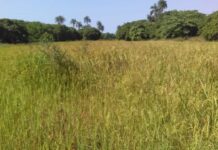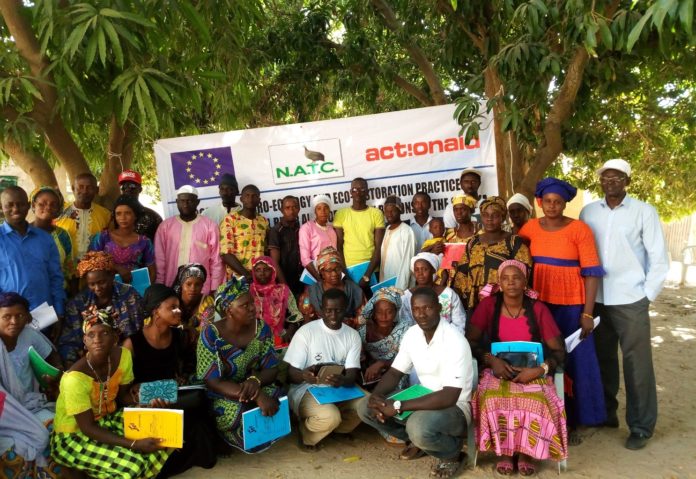BY MUSTAPHA JALLOW
Thirty communities in Lower and Upper Badibou districts, Jokadou, Upper Nuimi, Niamina East, Niamina West and Niamina Dankunku districts, are to benefit from a European Union (EU) funded project valued at D46,152,626.87 (824, 615.00 Euros).
The project, which will be implemented within 36 months, was secured by Action Aid International, the Gambia, in partnership with Njawara Agricultural Training Center (NATC) to promote agro-ecology and eco restoration practices in south central river and north bank regions of the country. The objective of the project is to contribute to job creation and food security for women and youth from 30 villages through agro-ecology and resilience building in these districts, in order to mitigate irregular migration.
As part of the start-up activities, ActionAid and partners conducted a two-day training of trainers for project beneficiary communities on participatory vulnerability analysis (PVA) from the 11th to the 12th of February 2019.
The Training of Trainers (TOT) invited 30 participants of whom 90% were women and youth from these communities. The training will be followed by a community analysis on vulnerabilities, hazard mapping and ranking occurrences of disasters, resource mapping with proposed actions for advocacy and campaign.
In his welcome remark, Badara Jobe on behalf of the Director of NATC, challenged the participants to concentrate and take ownership of the training.
He emphasized that building the capacities of women and youth to cope with climate vulnerabilities, is paramount and will go a long way in helping women to establish positive coping mechanism when disaster strikes. According to him, the training was timely as they needed farmers, especially women and youth to understand better innovative farming and coping systems in light of climate change.
He commended Action Aid and NATC for the training and the European Union for funding the project.
Foday Kanyi, Programme Specialist Resilience and Climate Justices and Project Coordinator, ActionAid noted that the project seeks to scale up adaptive capacities of women and youth on sustainable agriculture and climate change through agro-ecology and resilience practices and eco-restoration in Southern Central River and North Bank Regions.
Kanyi said 1,860 people (mainly women and youth), will benefit directly from the project and by extension, 32, 137 people would indirectly benefit; that some communities will also benefit from upland conservation to control erosion and enhance soil fertility. Kanyi informed participants that the project will establish three demonstration farms in the three communities that will be a center for innovation for Climate Resilience and Sustainable Agriculture (CRSA), as well as support farmers with livelihood schemes and production inputs that will enhance their adaptive and innovative skills, in light of climate change.
‘‘The impact of climate change brings about hazards that affect lives and livelihoods and the environment; thus networking with relevant stakeholders on the implementation of the project at both local and national levels, is paramount for sustainability,’’ he informed participants. He further said their advocacy activities will be geared towards contributing to policy forums at regional and national levels.
Meanwhile, the two-day PVA training involved demonstration and practical use of participatory tools such as vulnerability and resource map, Venn diagraming, seasonal calendar, historical timeline, and hazard mapping etc.
At the end of the training, participants expressed appreciation; that their skills and knowledge have improved and they are prepared to share their skills and knowledge when they go home; that they are expected to facilitate vulnerability analysis in their respective communities.





















